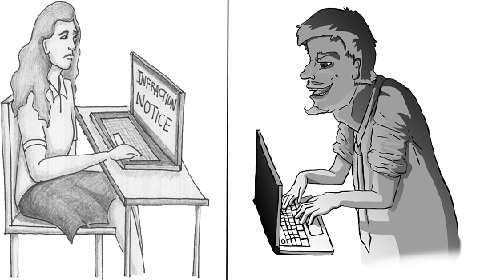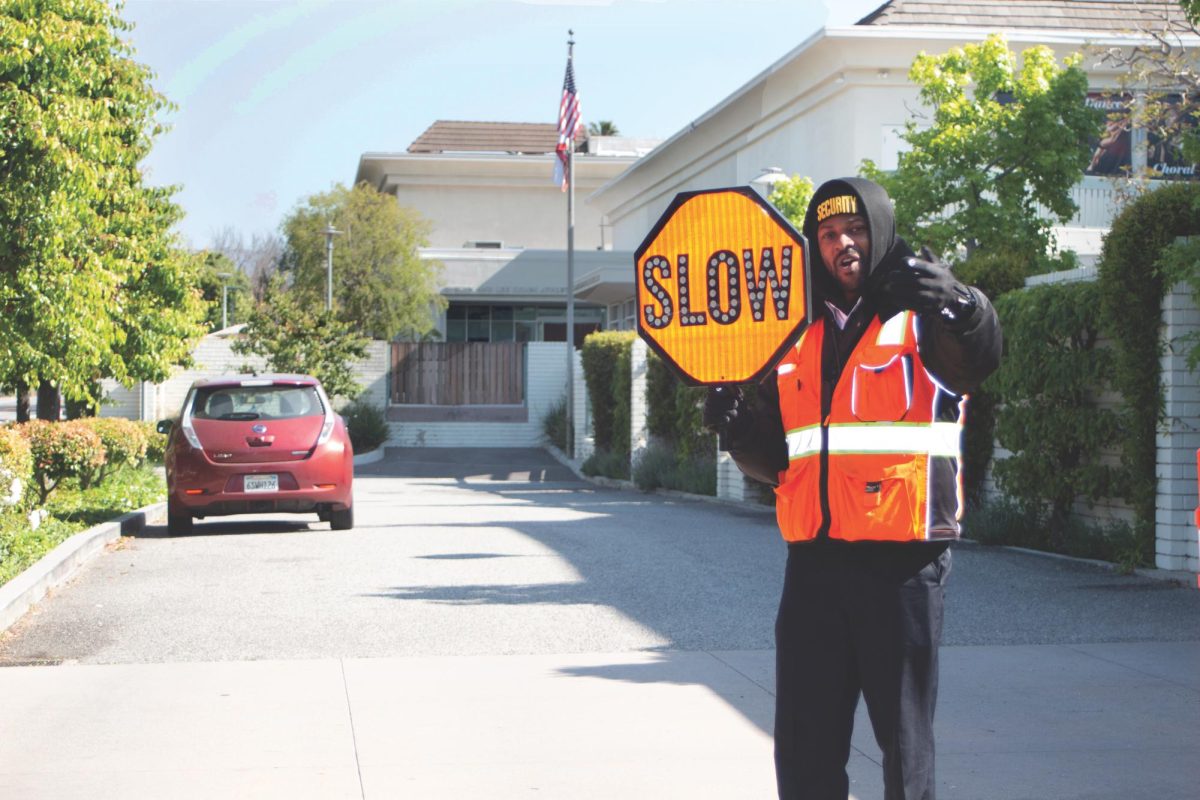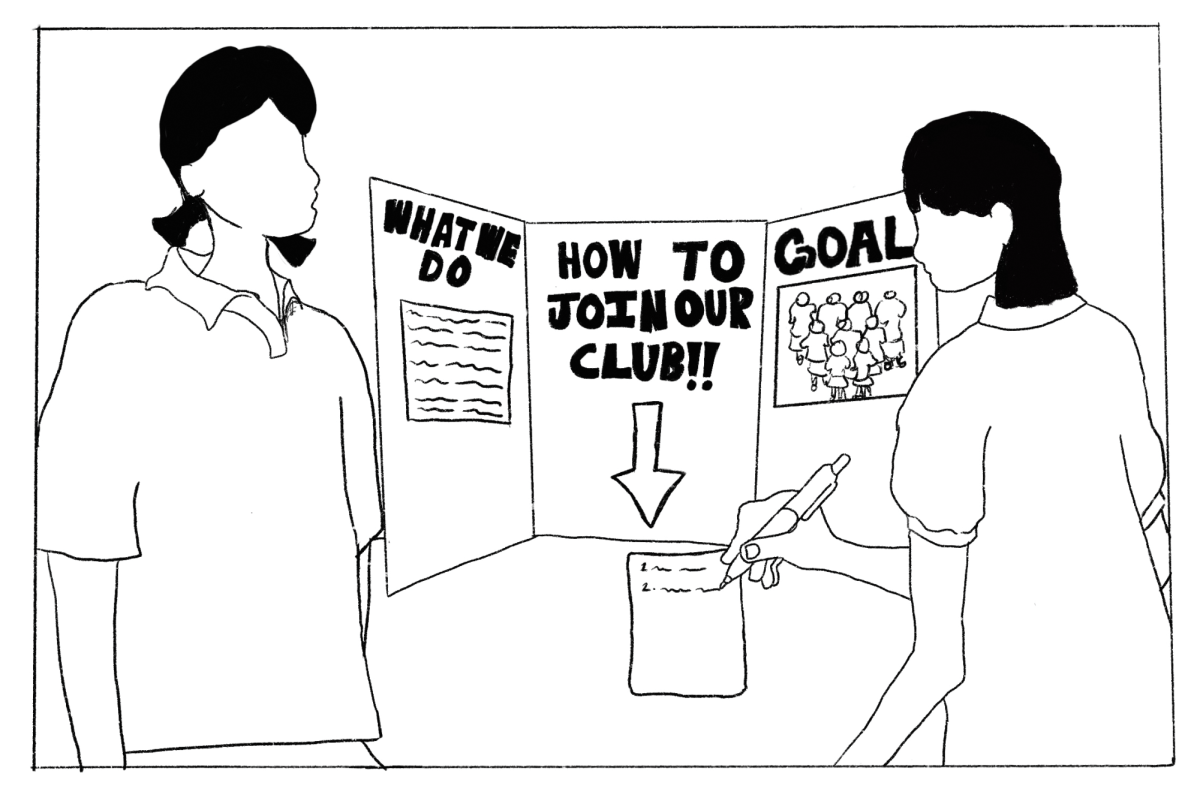
Starting with the 2013-2014 school year, Marlborough School has imposed a digitized “infraction system” in order to replace the old, paper-based demerit system.
In the newly digitized system, a teacher issues an infraction to a student, and an e-mail is automatically sent to the offending student, her advisor, and the grade-level dean, informing them of the student’s violation. This is a dramatic change from previous years, in which the teacher who noticed the deviant student would write out the student’s violation and information such as the student’s name and the date on a slip of copy paper. Copies would be distributed to each of the aforementioned individuals. The new system provides all members of the Marlborough community (faculty and administrators included) with both benefits and challenges.
Most importantly, the new system sets a dangerous precedent. It demonstrates that it is okay to hide behind a computer screen when important issues come up. With the new system, teachers can almost entirely remove themselves from the emotions of the encounter and distance themselves from the discomfort of issuing an infraction in person. This makes it significantly less difficult, at least on an emotional level, for teachers to dole out infractions, something that is worrisome to many students.
The infractions that students have been receiving under the new system have left them feeling miffed, confused, and disconcerted. Notification e-mails about infractions are terse and devoid of any human connection, and the teacher behind the e-mail seems oddly removed from the situation.
With students constantly being reminded of the dangers of eliminating human interaction and the rise of cyber-bullying, we at the UltraViolet think that it is vital that the School sends an unwavering message. Confrontations can be healthy; they keep negative feelings from festering in deleterious ways. Just as a passive-aggressive, emotionally detached text message is a bad way to talk to a friend about changing her behavior, an impersonal e-mail generated by a computer program is the wrong way to address a student’s conduct.
The previous infraction system had its flaws, but in general it was worth saving. One of the main goals of switching to the e-mail system was to totally eliminate the use of paper demerits, helping the school to reach its goal of becoming a “green” community. Also, the digitization helps to eliminate human error in its varying forms, be it coffee stains on the paper, the note getting lost on its way to or from the advisor’s mailbox, or rips in the delicate paper. The infraction system has both pros and cons, but we believe the system could be significantly helped if teachers were required to verbally notify the students before they sent out the infraction.










